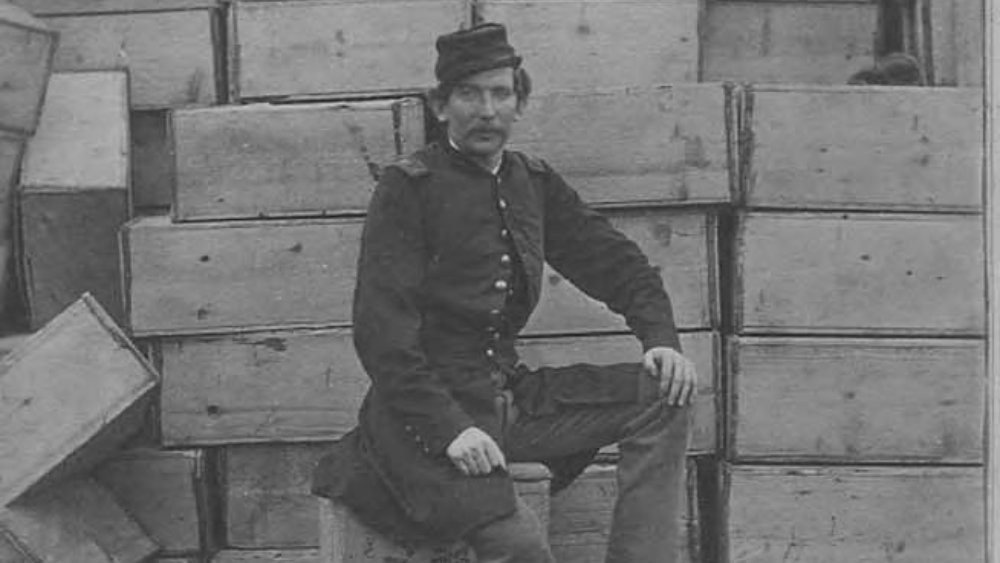James William Forsyth’s life is one of both honor and controversy—a journey shaped by loyalty to his country, the turbulence of war, and the difficult choices of a soldier on the American frontier. Born on August 8, 1834, in the small town of Maumee, Ohio, he grew up in a world where the United States was still finding its place. Like many young men of his generation, he chose a path of service, entering West Point at just 17. By the time he graduated in 1856, he was already stepping into a career that would carry him through some of the most defining moments in American history.
A Young Officer in a Divided Nation
James W. Forsyth began his Army life far from home, serving in the Pacific Northwest before the storm of the Civil War broke out. When the conflict came, it tested him—as it did an entire generation. He first helped lead the 64th Ohio Infantry, but soon found himself at the side of General Philip Sheridan, one of the Union’s most aggressive commanders.
Serving as Sheridan’s adjutant and later chief of staff, Forsyth rode with him through some of the fiercest campaigns of the war—the Shenandoah Valley, Cedar Creek, and finally Appomattox, where the war came to a close. For his steady hand and skill in managing cavalry operations, he was promoted several times. Sheridan trusted him deeply, and that trust would shape Forsyth’s career long after the guns of the Civil War fell silent.
James W. Forsyth: Life on the Frontier
When the war ended, the country turned its attention westward, and so did Forsyth. He followed Sheridan to the frontier and enforced federal authority across the vast, unsettled territories. Settlers saw open skies and opportunity, while Native peoples faced hardship and displacement.
James W. Forsyth commanded several cavalry units during his long career. He also traveled to Europe to observe the Franco-Prussian War and study modern tactics. At Fort Riley, Kansas, he helped strengthen military training for future soldiers. Forsyth demonstrated that he was more than just a fighter—he was a teacher, a planner, and a firm believer in the importance of preparation and discipline.

The Tragedy of Wounded Knee
Yet history forever ties Forsyth’s name to one of the darkest chapters of the U.S. military. In December 1890, as colonel of the 7th Cavalry, he commanded troops at Wounded Knee Creek. What began as an attempt to disarm a group of Lakota Sioux turned into chaos. Gunfire erupted, and within hours, more than 250 Lakota men, women, and children lay dead.
The massacre shocked the nation. James W. Forsyth was briefly relieved of command and investigated, though later reinstated. To some of his contemporaries, he was a man doing his duty in an impossible situation. To others, he bore responsibility for a tragedy that should never have happened. For Forsyth himself, the stain of Wounded Knee lingered for the rest of his life.
Final Years of Service
Despite the controversy, Forsyth continued to rise in rank. In 1894, he became a brigadier general and took command of the Department of California. Just three years later, he reached the rank of major general. Even though he retired only days later, closing a career that had spanned more than 40 years.
Husband, Father, Soldier
Away from the battlefield, Forsyth was a husband and father. He married the daughter of Ohio Governor William Dennison, and together they raised four children. After his retirement, he returned to Ohio, spending his final years quietly in Columbus. He died there on October 24, 1906, at the age of 72, and was laid to rest at Green Lawn Cemetery.
A Complicated Legacy
James W. Forsyth’s story is not a simple one. He was a capable soldier, a trusted officer, and a man who gave his life to the service of his country. At the same time, history forever links his name with Wounded Knee—a tragedy not forgotten.
In the end, Forsyth’s life reflects the complexity of America’s past. It holds moments of courage and dedication. It is also shadowed by decisions that carried lasting consequences. His story shows that history is shaped not only by heroes or villains, but by people navigating the struggles of their own time.











